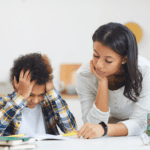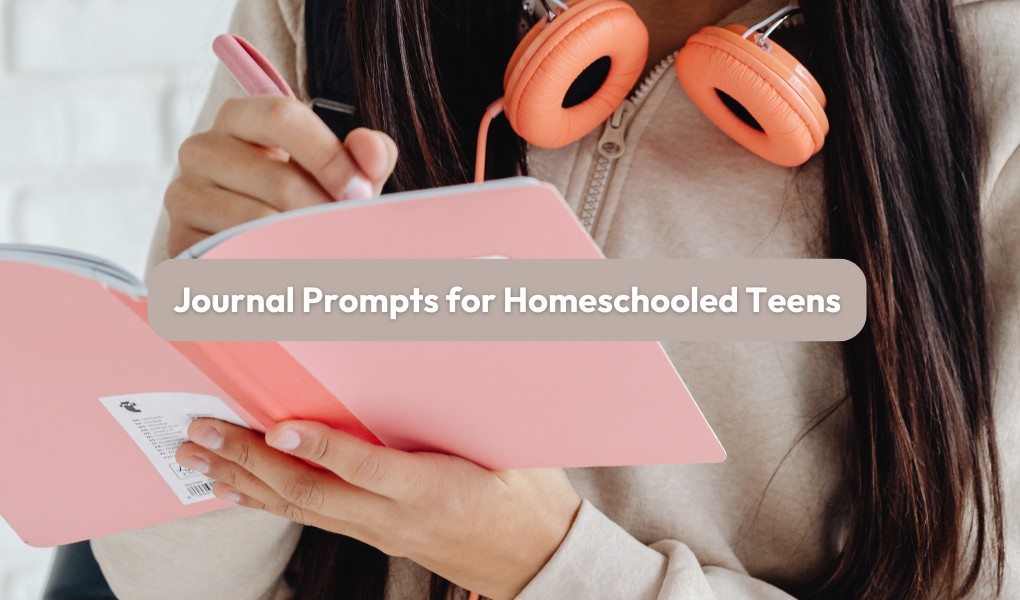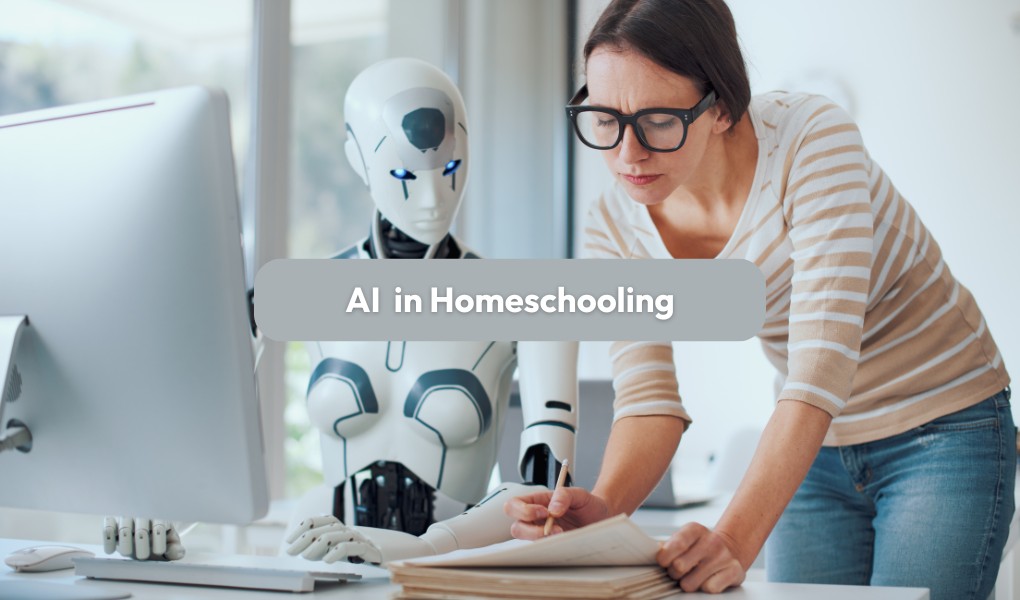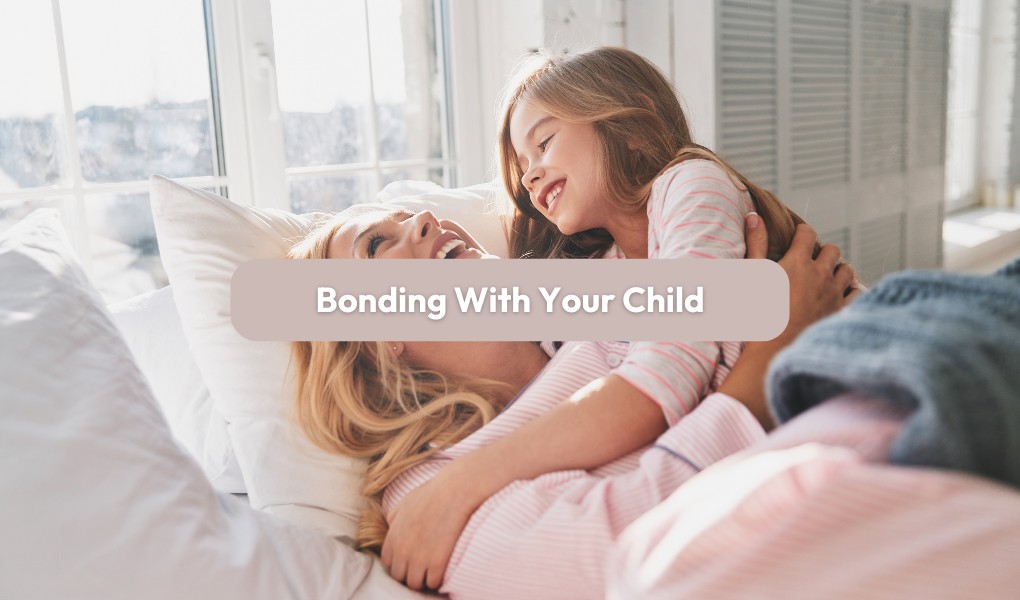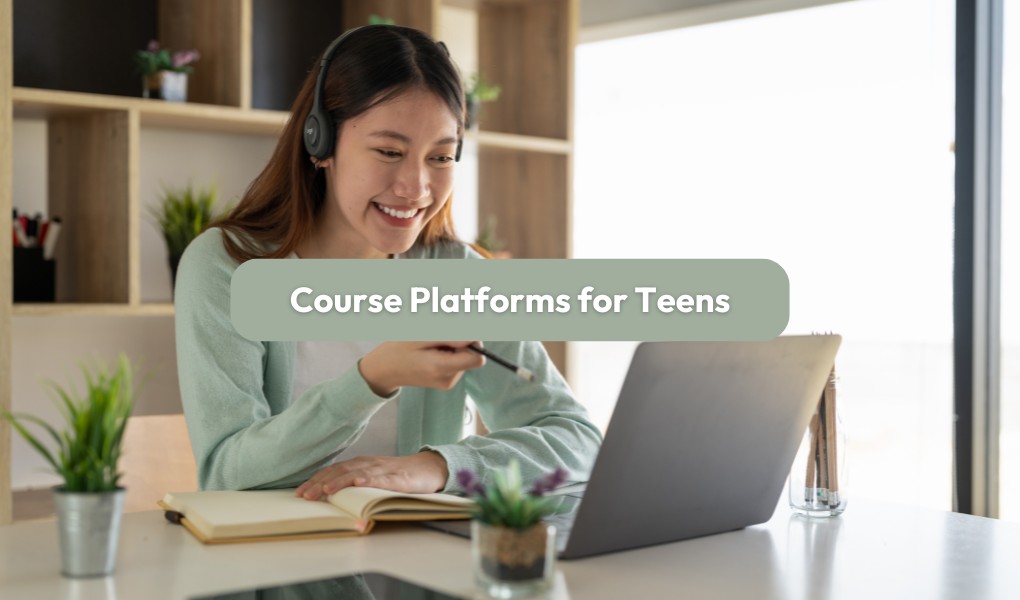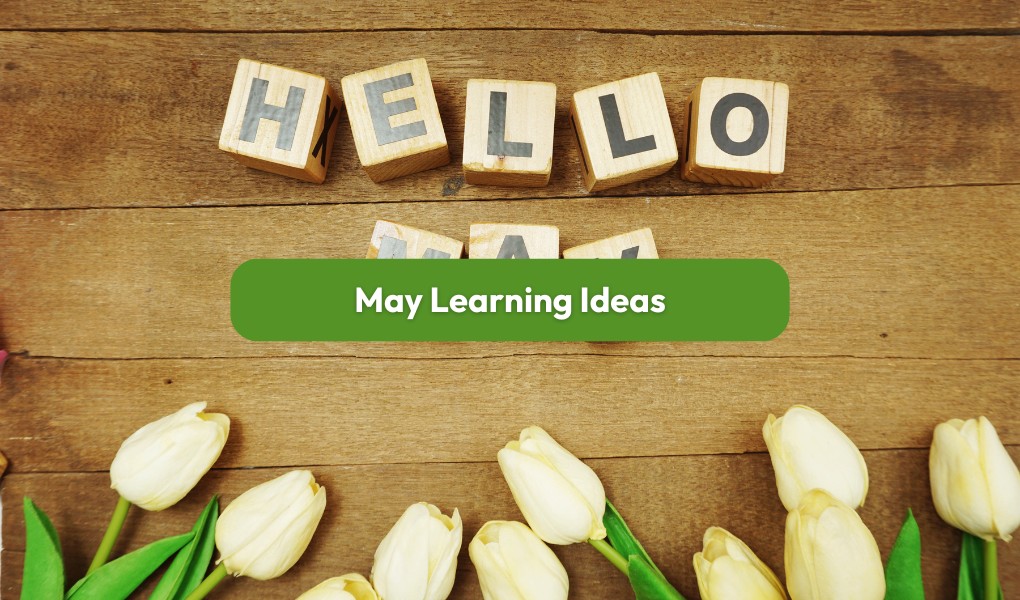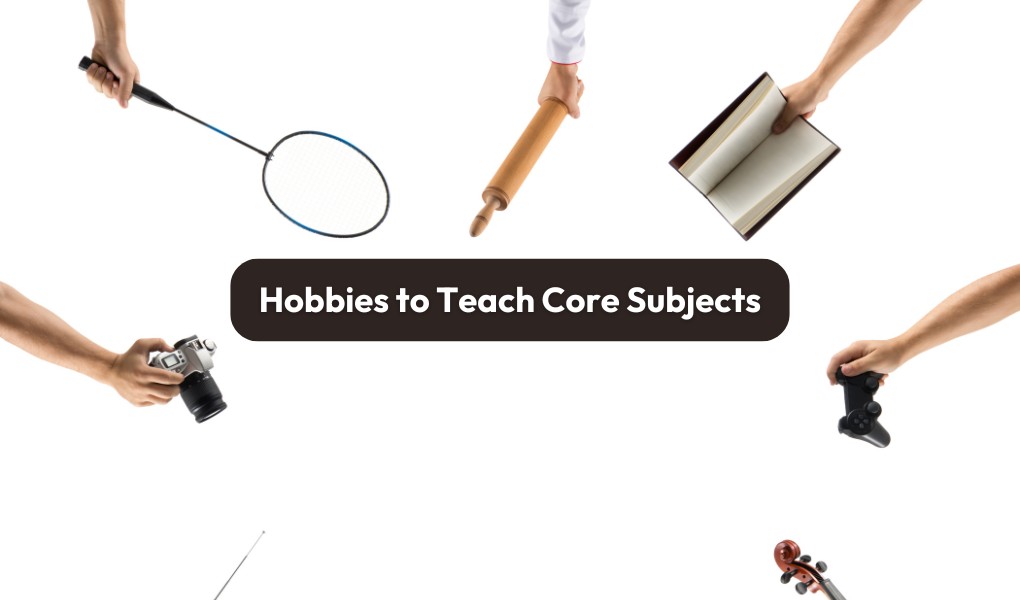Unschooling is a natural approach to learning, which is entirely child-led and centred on their desire to learn. Children are trusted to find their own path and pursue knowledge through their own interests and curiosities. It’s learning through living and experiencing the world for what it is.
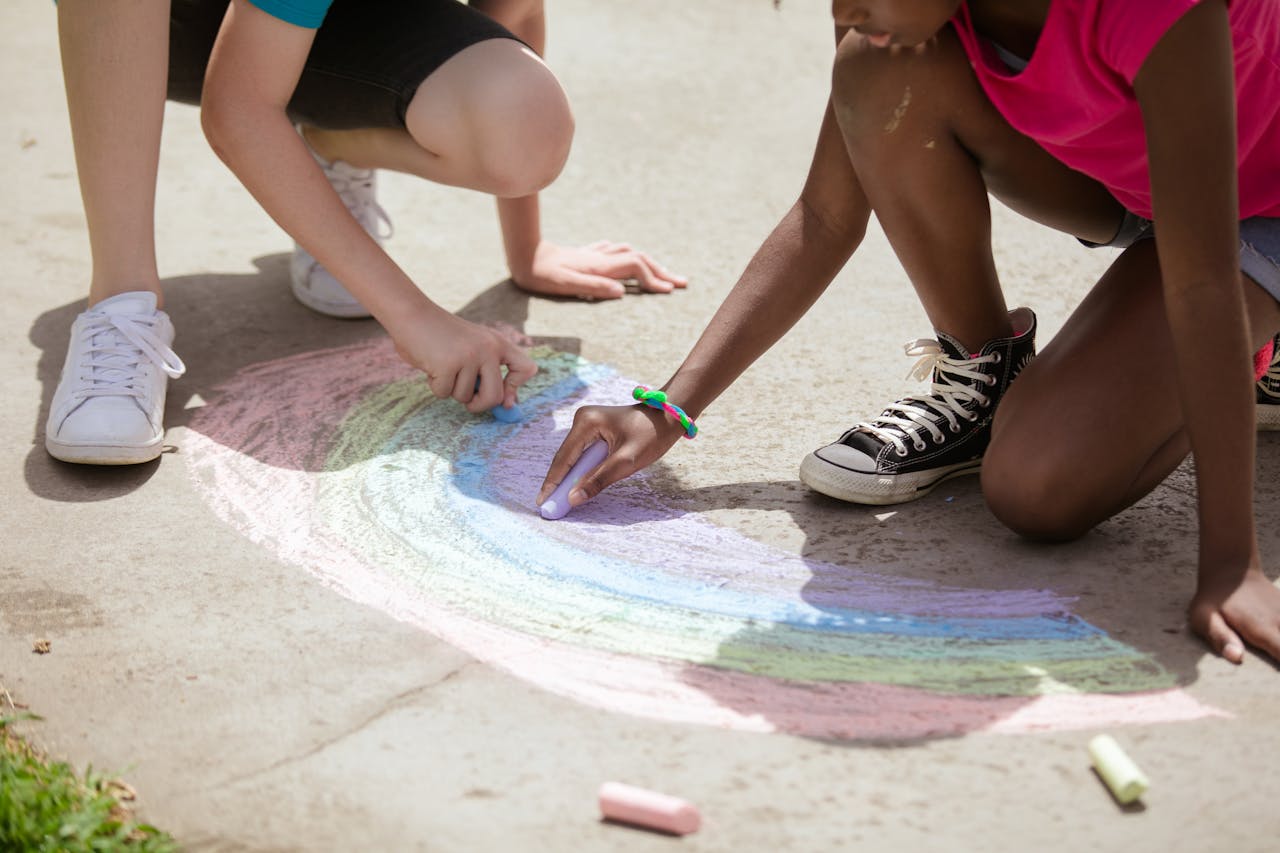
Table of Contents
What is Unschooling?
Unschooling is a natural approach to learning, which is entirely child-led and centred on their desire to learn. Children are trusted to find their own path and pursue knowledge through their own interests and curiosities. It’s learning through living and experiencing the world for what it is.
There is no method to unschooling and it’s not something that is taught. Instead, it’s something that is discovered, with the guidance of parents/carers. The definition of unschooling is likely going to be different for every family as every child is different. They’re naturally going to be drawn to their interests and develop skills and abilities that work for them.
Why Should You Unschool?
No one can tell you to unschool, but it’s a recommended choice to make after deschooling and here’s why:
- It allows children to follow their own path after being in school
- They can discover what it really means to learn
- Children aren’t restricted by a ‘system’ and have more educational freedom
- Children have the flexibility to learn more practically and creatively
- Unschooling motivates children to learn
- They don’t have to stick to a timetable or be made to follow a curriculum
- There’s less pressure
- It can improve parent and child relationships
- It’s a more natural way of learning
What is the Difference Between Unschooling and Deschooling?
Unschooling and deschooling are terms that can easily get mixed up, so we’ve made it a little easier for you to remember them:
Deschooling is departing from school and transitioning to Home Education.
Unschooling is unlearning everything about how education is done in school and focusing on a child-led approach to learning.
Here are some other differences between unschooling and deschooling.
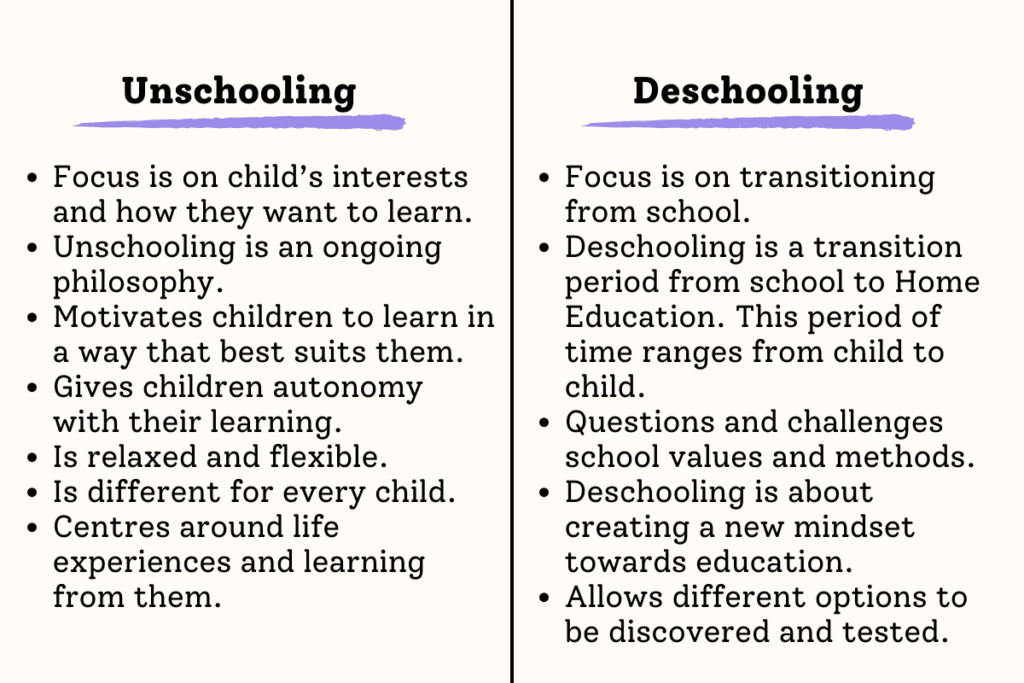
10 Steps to Unschool After You’ve Deschooled
There’s no right or wrong way to unschool and no set method either. Many families learn as they go and have more freedom doing it that way. That said, if you want some general advice on how to unschool, especially after you’ve deschooled, then these are the steps we’d recommend.
1. Be more relaxed and open-minded
Unschooling doesn’t need to be stressful. In fact, if you go into it with an open-mind it’s going to make things a lot easier. Be relaxed in your approach and gently ease your child into this new way of thinking and learning.
2. Let your child lead
Unschooling is completely child-led so don’t be afraid to let them lead. If there’s something that your child wants to do or learn, or if there’s a particular way they want to do something, then let them try. Children have to make these discoveries for themselves and it’s the best thing for them.
3. Explore your child’s interests
If your child is really interested in a topic, explore it as much as you can! Children have a strong sense of knowing what they like and what they dislike. So, if they’re learning something they enjoy, there’s always going to be motivation to learn more.
4. Act on your child’s questions
Questions are so important to children — they show an eagerness to gain knowledge. If your child is asking lots of questions about something, don’t ignore them or make a half-hearted effort. Instead, act on your child’s questions by doing as much as you can to help them discover the answers. For example, if your child asks a question about planes and how they fly, use this as an opportunity to go to the library and find books about planes or take them to an aviation museum. That way, you are actively helping your child to answer their own question and learn more.
5. Do projects together
Doing projects together not only encourages children to learn through enjoyment, it also helps to create connection.
6. Make the most of the resources around you
Unschooling doesn’t need to be costly or use the same resources as school. And don’t feel like you always have to fill in the blanks or cure your child’s boredom either. In fact, you’ll find that children will naturally be drawn to, and learn how to, use resources that are already around them.
7. Expose your child to different things
Exposure is the best thing for children. If they are exposed to a variety of things, whether it be books, games, people and places, they will eventually explore new interests and make new discoveries.
8. Connect with other people
Connections are important as children develop and grow older. Often children make these connections themselves, but it’s also good for parents/carers to help their children connect with people that they might not necessarily have connected with on their own. By joining different groups, exposing your child to different people and activities, they will connect with people of all different ages and backgrounds.
9. Learn as you go
Learning as you go is what unschooling is all about. It’s not something that can be mastered or done quickly. It’s about finding out what works best for you. So don’t be put off about trying different things and know that the process is meant to be fun.
10. Trust your child
Most importantly, trust your child to learn. They’re going to do it in the most interesting and fun way for them, no matter how different or unusual it might seem to other people. Trust your child’s ability to make their own choices and trust that you are doing the right thing by trusting them.
We hope these steps will help you to figure out how you’re going to unschool your child, but if you have any other questions, please reach out to us!
m@liberated
Want more from Liberated to Learn?
Subscribe to stay updated about new posts, resources and giveaways!



